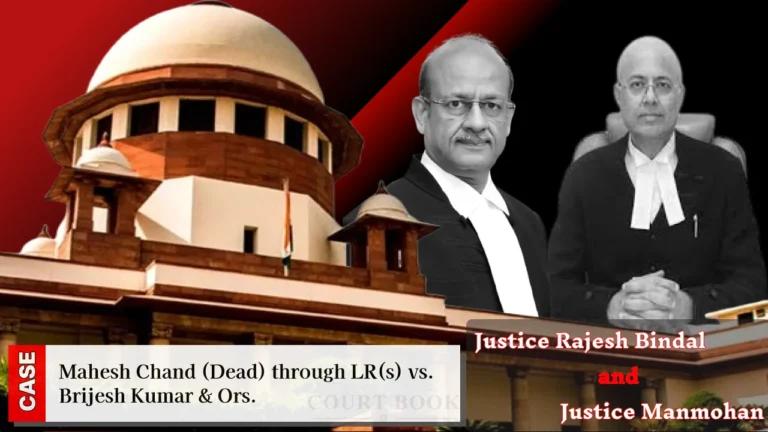The Supreme Court of India has allowed an appeal by the legal heirs of a landlord in a decades-old tenancy dispute, setting aside an order of the Allahabad High Court. The top court held that once land is declared non-agricultural, jurisdiction lies with the Civil Court, even if the suit was filed earlier when such declaration was pending.
Background of the Dispute
The case traces back to 1970, when a piece of land in Bulandshahr was leased at ₹150 per month to the predecessor of the tenants for setting up an Indian Oil petrol pump. The registered tenancy agreement clearly mentioned eviction rights in case of rent default. When tenants stopped paying rent after June 1972, the landlord filed a suit in 1974 for eviction and arrears.
Read also:- Jhansi 1983 Murder Case: Allahabad High Court Overturns Life Sentence of Vijai @ Babban After Four Decades
The tenants argued that the land was agricultural and only a Revenue Court could hear the case. However, the trial court rejected this plea in 1976, stating the land was being used for commercial purposes. The suit was decreed in 1981, but subsequent appeals complicated the matter.
The First Appellate Court relied on provisions of the Uttar Pradesh Zamindari Abolition and Land Reforms Act, 1950 (UPZALR Act) and held that since the land was not declared non-agricultural under Section 143, Civil Courts lacked jurisdiction. The High Court later upheld this view in 2024, returning the plaint under Order VII Rule 10 of the Code of Civil Procedure.
Read also:- Calcutta High Court Grants Interim Relief to Mani Square Limited in Loan Dispute with Piramal Finance
A bench of Justice Rajesh Bindal and Justice Manmohan heard the appeal and carefully examined the long history of the case. The Court noted that initial approval to use the land for non-agricultural purposes was granted in 1975, and a final declaration came in 1986 during the pendency of appeals.
Justice Rajesh Bindal, delivering the judgment, observed:
"Appeal is a continuation of proceedings, and subsequent developments that go to the root of the case must be considered to avoid multiplicity of litigation."
Read also:- Supreme Court Rejects NCPCR Plea on Muslim Girl’s Marriage Case
The court further clarified that the responsibility for registering the declaration under Section 145 of the UPZALR Act rests with the revenue authorities, not with the landowner. Hence, non-registration could not nullify the declaration.
The Supreme Court allowed the appeal, set aside the High Court’s order, and restored the matter to the First Appellate Court for a decision on merits within six months. Emphasising the long pendency, the bench directed speedy disposal, noting that the litigation had dragged on for more than five decades.
Case Title: Mahesh Chand (Dead) through LR(s) vs. Brijesh Kumar & Ors.
Case Number: Civil Appeal No. 10256 of 2025












